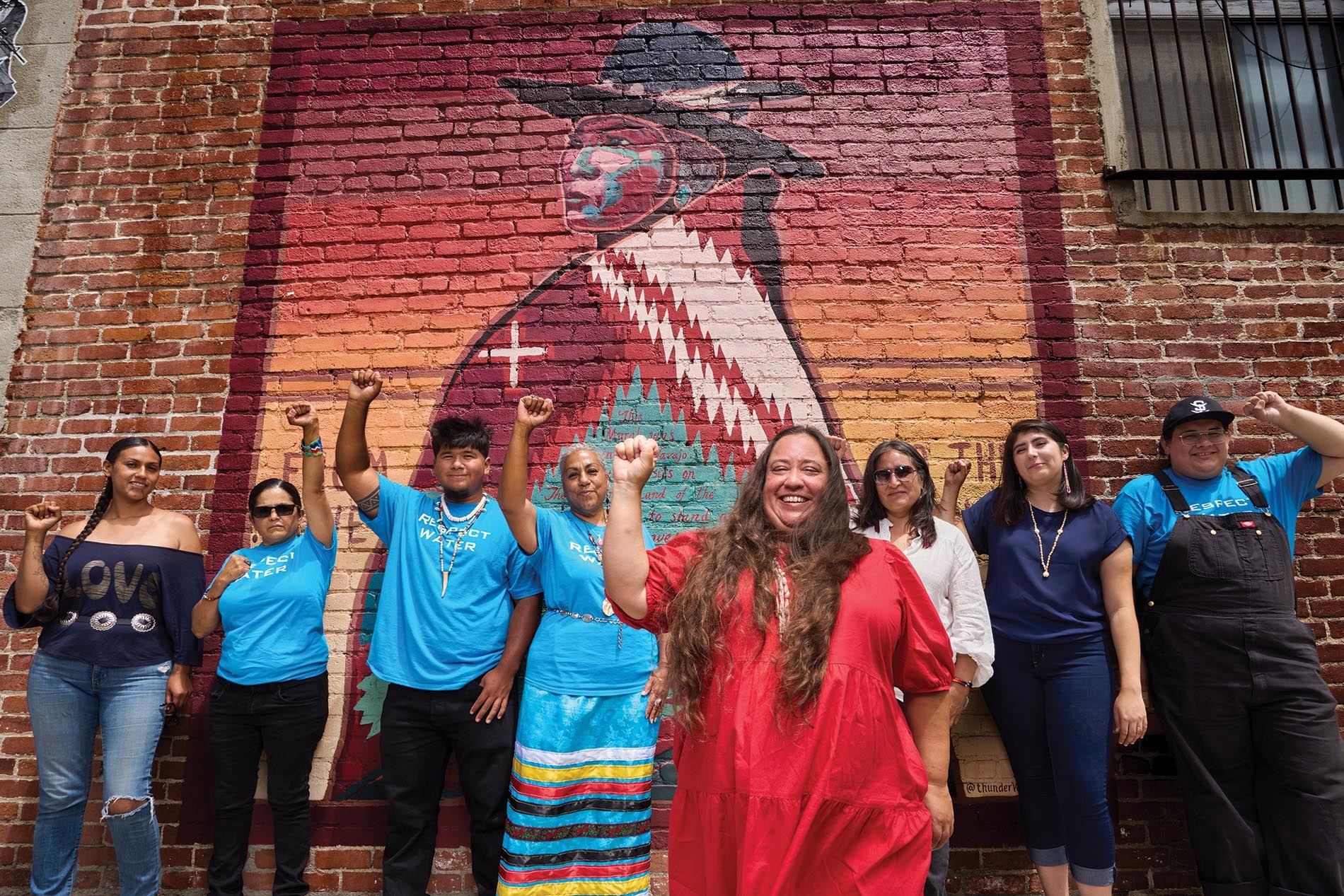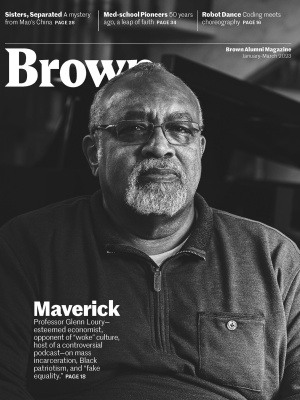In 2016, a luxury housing development was planned for 400 acres near the coast in Orange County, California—land used for oil drilling but, centuries before that, belonging to the region’s Indigenous Tongva and Acjachemen tribes. As founder and executive director of the Sacred Places Institute (SPI) for Indigenous Peoples, Angela Mooney D’Arcy ’98, an Acjachemen tribal member, was key to a successful effort to get the California Coastal Commission to deny the development. Fundraising aims to turn the land into a public park and conservancy with Native input.
The turnabout was a victory for D’Arcy, who, since starting SPI in 2012, has dedicated her life to returning land to the Indigenous tribes of California—some of whom are not federally recognized—and to increasing the say that tribal communities have in the use of their ancestral lands. “It’s scary and challenging to create something new, especially as an Indigenous woman,” she says. “But it’s absolutely worth it.”
Born in her Acjachemen homeland but raised in Kansas, D’Arcy got involved with the group Native Americans at Brown while in Providence, helping to revive the campus’s long-abandoned Native American History Week. After graduating, she moved to San Juan Capistrano, California—home to many Acjachemen tribe members, including relatives—then focused on federal Indian law at UCLA Law School. “I quickly realized that the change I wanted to see wasn’t possible through the settler-colonial legal system,” she says. She also realized that Native communities needed a long-term power-building strategy rather than reacting to one land threat after another.
“That’s how SPI started,” she says. She is particularly proud that half the staff of 10 is from area ancestral homelands, that most of the advisory board are elders, and that a flat pay rate means she makes as much as her 18-year-old staffer. “That’s pushing back against the settler-colonial ideology,” she says.
SPI persuaded the California Coastal Conservancy, a powerful land-use entity, to develop a national tribal consultation policy. Under SPI media director Nanobah Becker ’97, the group is making a documentary on California Indigenous tribes’ relationship to water. And SPI got Los Angeles County to include representation from area tribes on its so-called Just Transition Task Force, to make sure Native concerns are represented as the county dials down its use of fossil fuels. “As far as we’re aware,” says D’Arcy, “it’s the only such task force in the country that mandates Native inclusion.”
D’Arcy’s goals include building the next generation of Indigenous leaders and increasing land returns such as the 400 acres in Orange County. “Every day I wake up,” she says, “I get to do something I love that has tremendous value not just for my community but for the world as a whole.” Learn more at sacredplacesinstitute.org.





